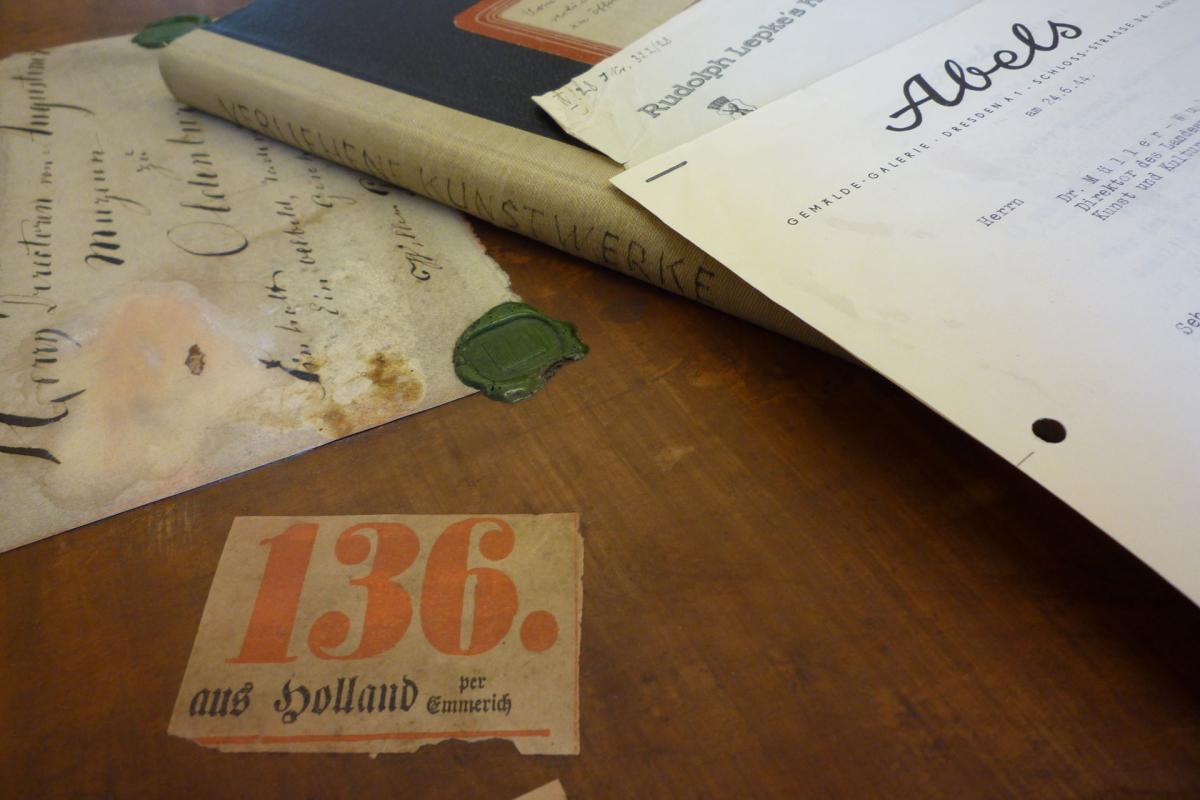Klassik Stiftung Weimar has identified 39 letters, a poetry manuscript and a folder with handwritten notes by collector Beno Kaufmann and restituted these items to the latter’s heirs. It is the most extensive case of Nazi-looted property in the holdings of the Goethe and Schiller Archive.
The Goethe and Schiller Archive and the Thuringian State Library in Weimar (now part of Klassik Stiftung Weimar) acquired the manuscripts from a Berlin dealer in 1942. Research has revealed that Beno Kaufmann’s collections were confiscated by the National Socialist financial authorities in Dresden and are therefore to be categorised as Nazi-looted property.
The collector Beno Berl Kaufmann was born on 10 March 1862 in Krakow/Austria, later living in Berlin and from around 1923 in Dresden. He collected coins, books, prints and manuscripts. After the National Socialist seized power in 1933, he was persecuted as a Jew and forcibly transferred to the Israelite sanatorium and nursing home in Bendorf-Sayn near Koblenz on 19 June 1942 at the age of 80, having been diagnosed as having “senile dementia”. On 27 July 1942, Beno Kaufmann was deported to the Theresienstadt concentration camp, where he died on 12 August 1942 under unexplained circumstances.
The search for heirs initially proved difficult: Beno Kaufmann was childless but he had five siblings, four nieces and three nephews. Several family members were murdered in the Holocaust, others managed to escape. Two families were eventually found in the USA who were descended from two of Beno Kaufmann’s brothers. Up to this point, the descendants had known nothing of each other and very little about the history of their family. They took the time to get to know each other and discuss what to do with the items identified in Weimar.
In addition to Klassik Stiftung Weimar, the Saxon State and University Library Dresden, the Freies Deutsches Hochstift in Frankfurt a. M. and Thuringia Main State Archive Weimar also identified manuscripts from Beno Kaufmann’s collection in their holdings. A joint restitution was finally made to the community of heirs under the direction of Klassik Stiftung Weimar, with a total of 66 objects being restored to their rightful owners. A letter and a folder were sent to the family on request. The remaining items were purchased by the institutions in question and are now legally in their collections.
To find out more about this restitution case, see the Klassik Stiftung Weimar blog.


